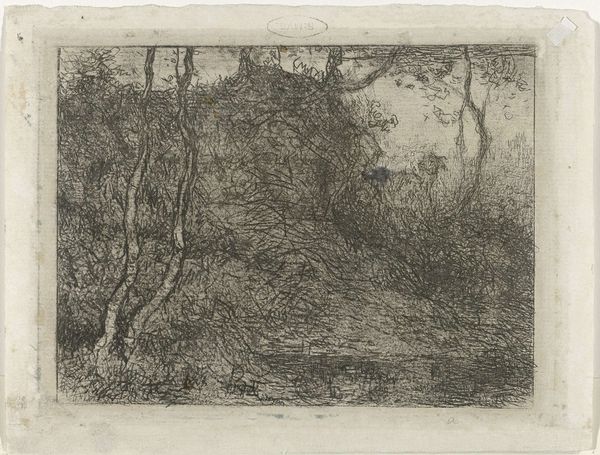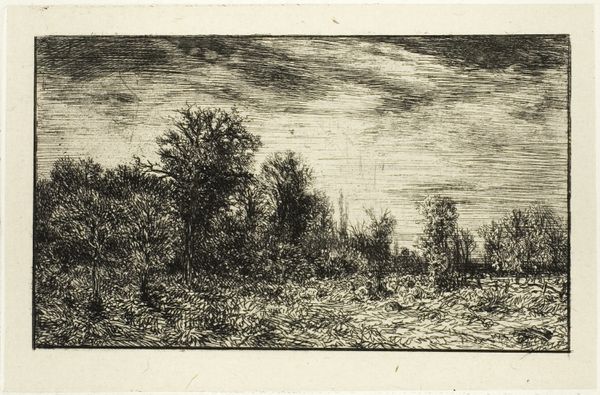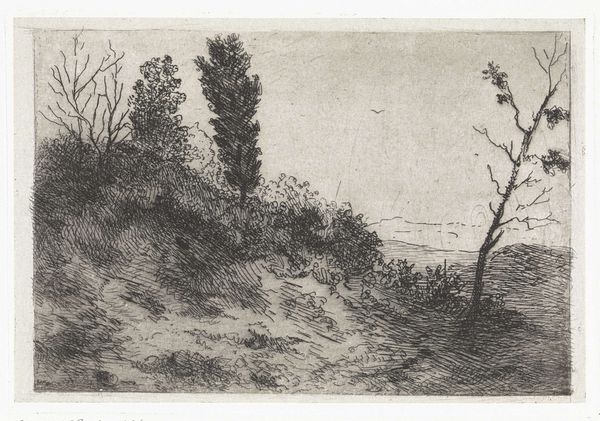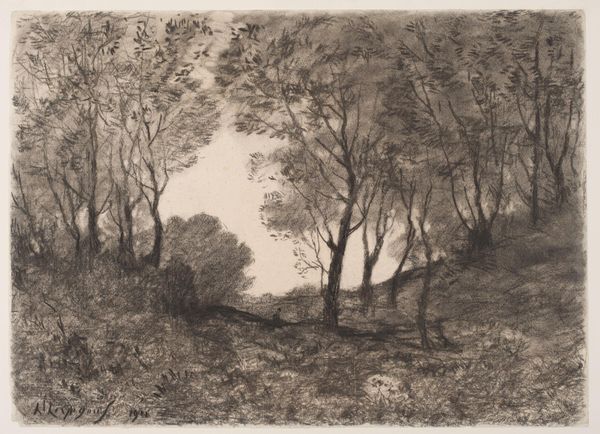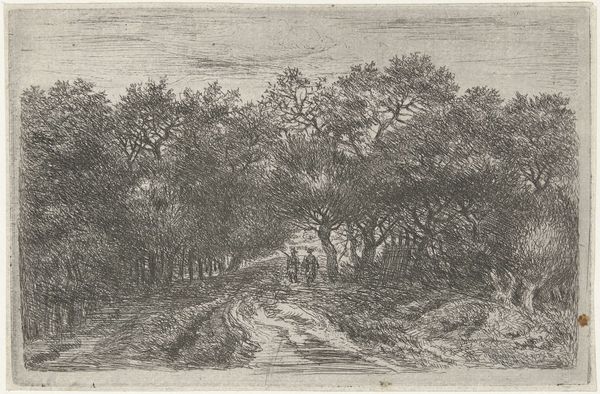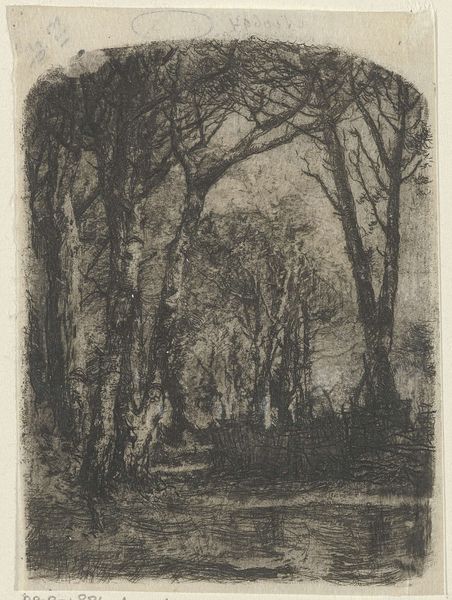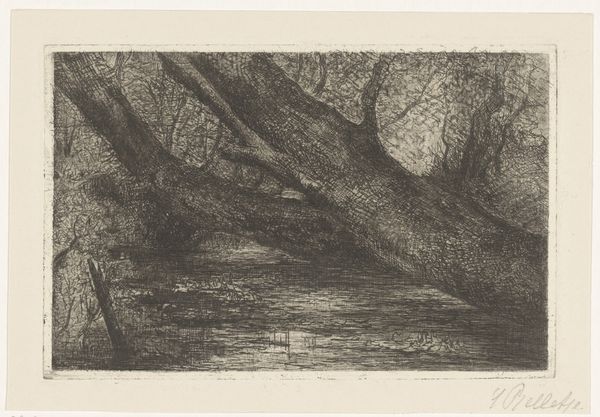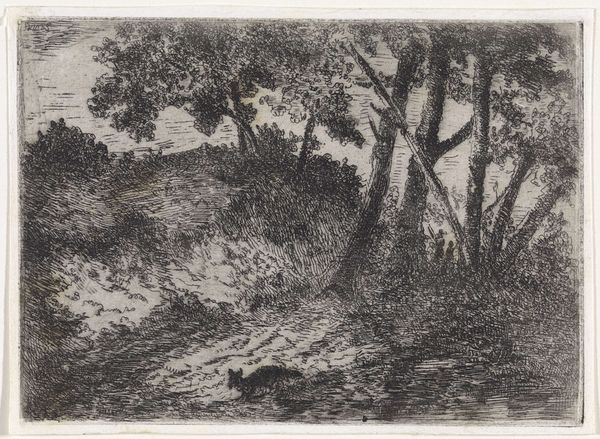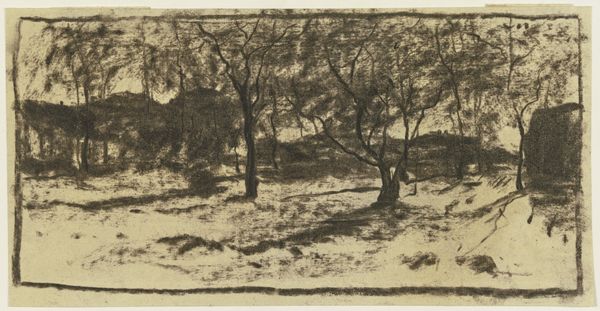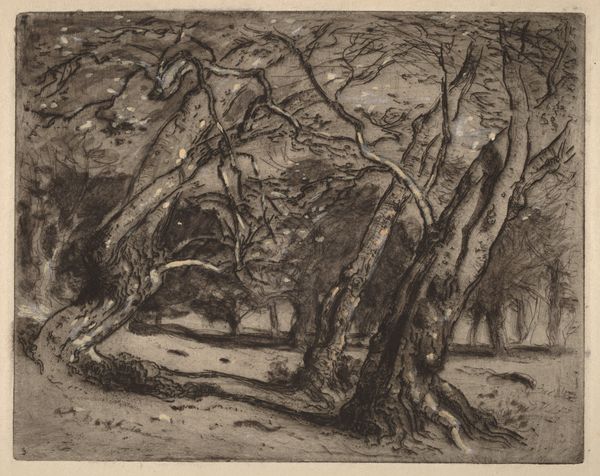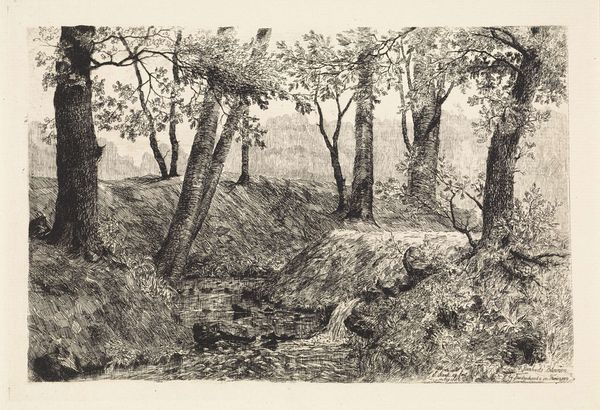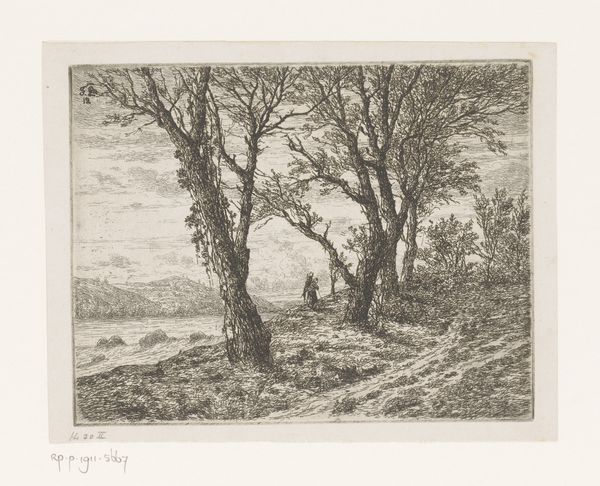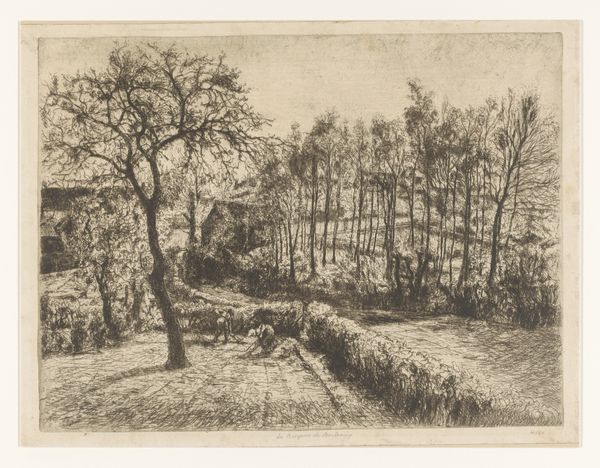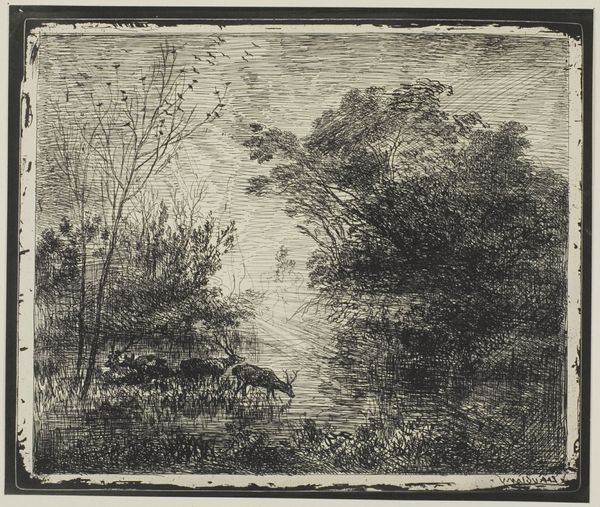
drawing, print, etching
#
drawing
#
16_19th-century
# print
#
etching
#
landscape
#
etching
#
realism
Dimensions: 75 × 114 mm (image); 83 × 119 mm (sheet)
Copyright: Public Domain
Charles Jacque created this artwork, 'Road at the Edge of a Wood' with etching in 1848, now at the Art Institute of Chicago. The composition is dominated by a dense thicket of trees, their branches interwoven to form a dark, almost impenetrable barrier. A barely visible road cuts through the landscape, its path obscured by shadow and foliage. The overall effect is one of enclosure. Jacque's use of etching lends a textural complexity to the scene. The lines are densely packed in the wooded areas, creating a contrast to the more sparsely rendered sky. This contrast creates depth, drawing the eye into the forest's depths. Here, nature is presented not as an open vista but as an enveloping, almost claustrophobic space. The density of the etched lines suggests a broader commentary on nature's power to overwhelm and obscure. The road, a symbol of human intervention, seems almost swallowed by the natural world, challenging our perception of space and inviting ongoing interpretation.
Comments
No comments
Be the first to comment and join the conversation on the ultimate creative platform.
